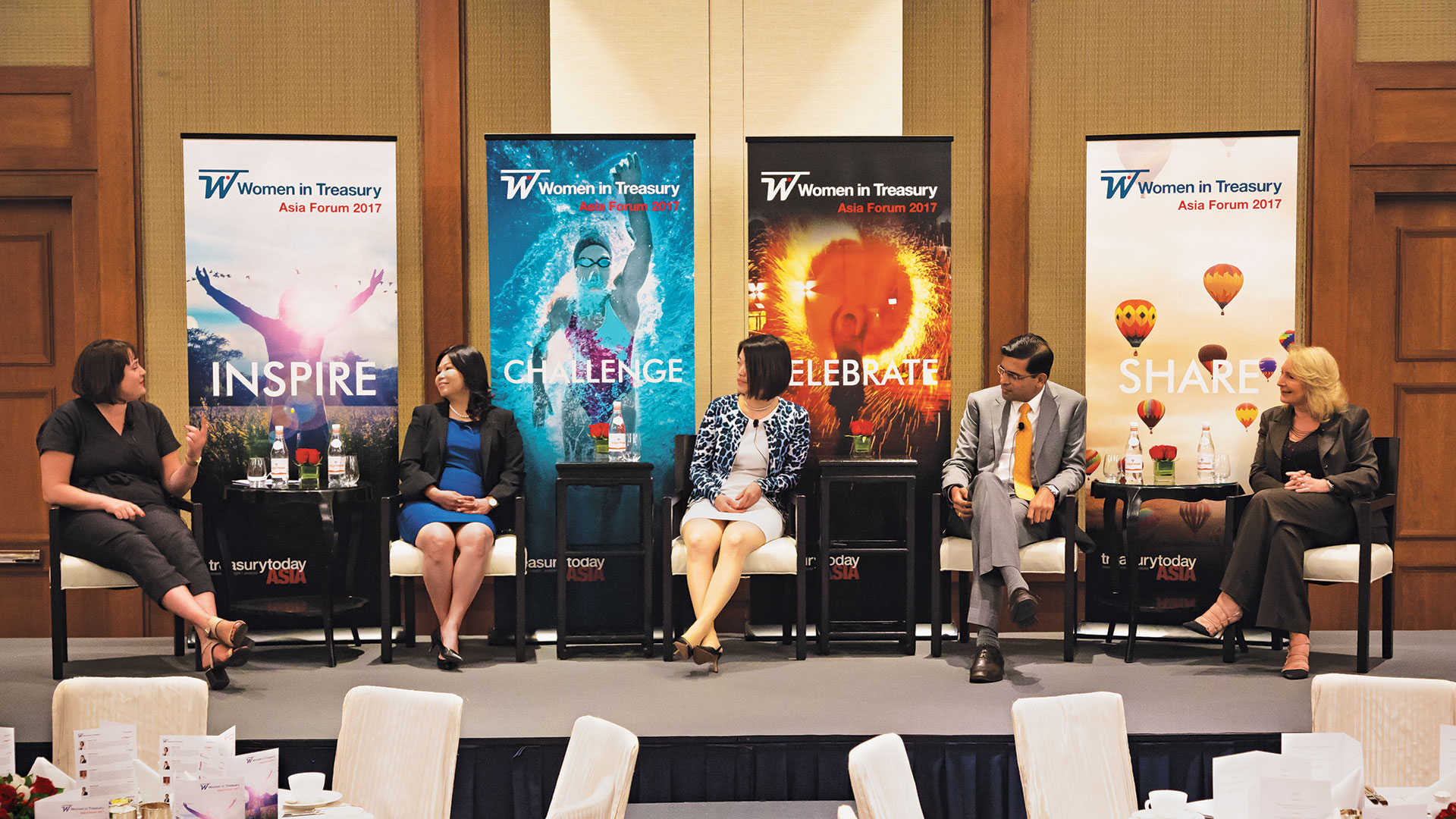
Over the five years that the Treasury Today Group have been running our Women in Treasury initiative, it has been interesting to see how conversations around diversity have evolved. In a relatively short time, diversity has shifted from a fringe topic to one at the heart of corporate life.
What is equally important is that the focus of these conversations has also shifted beyond the topic of gender diversity to focus on a much broader range of issues. These conversations are helping to create a more holistic view of what it means to have a diverse corporate culture.
There are many drivers behind this evolution, perhaps most crucial is the correlation between diversity and improved business performance. Numerous studies have highlighted this, such as McKinsey’s 2015 ‘Why Diversity Matters’ report, which found that companies in the top quartile for gender or racial and ethnic diversity are more likely to have financial returns above their national industry medians. Those in the bottom quartile in these dimensions are statistically less likely to achieve above-average returns.
A more recent paper from the Peterson Institute for International Economics came to similar conclusions. It found through the analysis of 21,980 firms from 91 countries that the presence of women in corporate leadership positions improves financial performance.
The journey to equality is not all about numbers and hitting targets. Diversity is the by-product of an inclusive workplace, diversity is what you have and inclusion is how you act. An inclusive workplace is one that welcomes diversity by creating an environment where different kinds of people can thrive and succeed.
Diversity in dialogue
As conversations around diversity in the workplace evolve, so too must our Women in Treasury initiative. The ways that businesses can create an inclusive environment and the need for continued promotion of diversity in the workplace were just two of the topics discussed at the most recent Women in Treasury Asia Forum, held at Singapore’s Four Seasons Hotel in April.
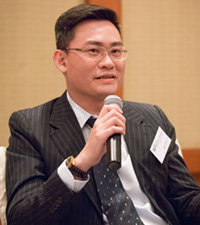
Now in its fifth year, our global initiative continues to gain momentum and is playing a pivotal role celebrating and promoting inclusion in the corporate finance space. This was highlighted by the presence of over 120 senior financial professionals, both male and female, from across the region who came together to network and learn from each other’s experiences. The panel has broadened this year to welcome our first male panellist, Manoj Dugar, Managing Director and Product Head for Core Cash, Asia Pacific Treasury Services, J.P. Morgan, who offered his perspective on the shifting dialogue as well as showcasing how male allies can support and effect change within their organisations.
The day began with a networking session before an introduction from Sophie Jackson, Associate Group Publisher. Then, James Hayward, Associate Editor at Treasury Today Asia discussed some of the key findings from the most recent Women in Treasury Global Study.
Following this, our guests went through for lunch and were then treated to an all-star panel discussion featuring four leading industry speakers, all of whom are enjoying extraordinary careers.
This year’s panel included:
- Felicia Foong, Regional Treasurer, Nestle
- Bonnie Yang, Treasury Director, Alibaba
- Manoj Dugar, Managing Director and Product Head for Core Cash, Asia Pacific Treasury Services, J.P. Morgan
- Toni Weber, Group Finance Director, interTouch
Sophie Jackson facilitated the dynamic and lively debate, which was defined by the open and honest views of the panel.
Journeys to the top
The panel session began with an exploration of the panellists’ careers in corporate finance, the journeys they have taken and the opportunities and challenges they have encountered along the way, with Manoj Dugar of J.P. Morgan highlighting the socio-cultural evolution he has seen over his 20 year banking career and how the dialogue has expanded to include discussions of racial and cultural backgrounds as well as sexuality alongside gender equality.
Although each panellist has followed a very different path to their current role, one thing bound them all: they had all made bold changes at some stage, be that changing role, industry, location or a combination of all three. Toni Weber, for instance, shared her decision to move from the UK, where she worked in a traditional accounting role, to Darwin, Australia. “This role saw me leave my pinstripes behind and get into scruffy clothes and go into the outback to audit aboriginal communities,” she explains. She admitted that this wasn’t an easy decision to make and joked that even most Australians that she knows haven’t been to the Northern Territories.
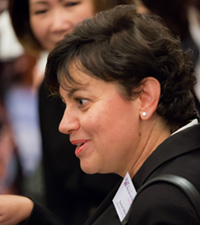
She was encouraged by her boss at the time though, who acted as an informal mentor and gave her the confidence to take this big step. “This move then gave me the confidence to keep pursuing different challenges and afterwards I moved to Paris, Amsterdam and then to China, which was completely outside of my comfort zone,” she says.
Felica Foong had similar experiences pushing herself outside of her comfort zone by taking on different roles within finance in countries in Europe and Asia. However, she admitted that not everyone can be mobile all the time – even if they would like to think that they are. Early on in her career, for example, she had specific career plans and opportunities to move overseas but that did not take place, before she finally moved to Hong Kong and then Switzerland. “Moving overseas often sounds like a good idea, but you will need a supportive family behind your decision,” she says. “One day you might be mobile and the next day you might not.”
The debate around diversity is starting to get more attention and forums such as this are a great avenue, especially for women, to get together and network, share experiences and learn to build up the treasury community and support the drive for greater diversity and inclusion in the corporate world.
Jennifer Leong, Treasury Director – Asia Pacific, Corporate Treasury, Cummins
She did encourage those in the audience though who hadn’t moved overseas in their career to do so at some stage. “Being mobile has opened up new career opportunities for me,” she says. “It has also enriched my personal life and that of my family. Yes, there is a steep learning curve professionally and culturally, but if it is something that you want to do then take charge of your career and do so.”
External encouragement
What is interesting in both of their accounts is that these brave steps were not made in isolation. Support from mentors, organisations, friends or spouses was crucial in helping them make their decisions. Indeed the role that mentoring, either official or unofficial, has played in their career development reflected the responses to our 2016 Women in Treasury Global Study, with 99% of respondents stating that mentoring is either very important or important.
Having a mentor that pushes you is not only important when looking to move overseas, they can also be important when you are looking to move industries. Bonnie Yang relayed this when discussing her transition from the world of banking to corporate treasury. “I had worked in banks for many years in numerous positions and really enjoyed my work,” she explains. “Some part of me always wanted to try new things, however, and I was told about the position at Alibaba by a friend who worked in corporate treasury. I must admit that I wasn’t sure at first about applying for the role, but my friend encouraged me to do so. After two years now in the role at Alibaba, I am very happy and glad that I made the decision to move to the corporate world.”
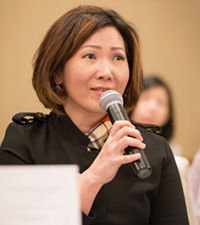
Bonnie was also supported by a mentoring arrangement upon joining Alibaba. “Every newcomer to the business gets a mentor,” says Bonnie. “They are there to help you navigate what is quite a complex business and ensure that you settle down quickly. I personally found this support extremely helpful.”
From this there was interesting debate around the types of mentoring that our panellists found to be the most productive. Felicia, for example, discussed her experiences as a mentor in a structured programme. “Mentoring works, but in my personal experience, structured mentoring programmes are not the most effective,” she says. “For instance, in my previous career, I was made a mentor at work and assigned a member of staff to coach. It went well to begin with and it faded away towards the end of the programme and we didn’t keep in touch. In another instance, someone approached me to be his mentor, a more organic arrangement. It is more spontaneous, there is chemistry, he feels that he can benefit from mycoaching and insights and I believe that I can add value to him, both contribute and have accountability over the relationship. I believe it can have a more positive impact.”
All panellists agreed though that their experience of being a mentor had helped them learn more about themselves, claiming that mentoring arrangements should ultimately be a positive experience for both mentor and mentee.
Culture change
As a senior leader in one of the world’s largest banks, Manoj Dugar offered some strong insight into the importance of creating diverse teams. Most notably he shared his fundamental belief that diverse and inclusive teams make better decisions, sharing his own efforts to make sure his team was diverse.
However, it takes more than one person to change a system and Manoj was keen to highlight that, across the board, attitudes and practices need to change, especially given the shifting sands of our modern cultural landscape.
Creating an inclusive environment is not easy though, and there are many obstacles that stand in the way. Manoj cited the most challenging of these is the need to abolish myths around gender roles and even go beyond thinking about gender at all; hiring people based purely on their skillsets as race, gender and age become irrelevant.
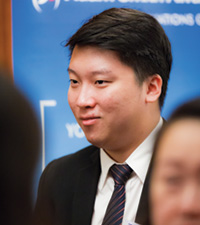
Toni shared her experiences throughout her career of overcoming such cultural challenges and breaking down barriers. She explained how early in her career she was prevented from being given a promotion because management found out that she was a woman, having presumed when reading her name initially that she was male. She also faced issues when working in China with problems around her taking on the CFO role. “It was mistakenly and short-sightedly assumed by the male CEO of the business that having a female CFO would cause him a loss of face in front of his Chinese partners,” says Toni.
Gender inequality and enforced stereotypes impact men as well as women. Manoj talked about how men who decide to stay at home and become primary caregivers for their children may often face judgement and feel insecure about their choice in erring from the stereotypical male role of breadwinner. When women choose not to take on the role of primary caregiver they can feel guilt and when men are not fulfilling the traditional role of breadwinner they can feel shame and to remove this we must dissolve any idea of designated gender roles. “There might need to be a family revolution, or human revolution to achieve this and ensure an environment where everybody can make respected choices,” said Manoj.
The next generation
What is clear is that businesses will need to change. The whole panel agreed that millennials are bringing a new way of thinking into businesses and disrupting traditional ways of working. The need therefore to build an inclusive workplace that welcomes people from different backgrounds, with different skillsets and experiences, is now a must.
Each individual on the panel is experiencing this shift in different ways. Manoj, for instance, highlighted his decision to take a much younger ‘tech-savvy’ colleague to a meeting in order to hear his perspective on the customer’s business. Upon arrival at the meeting, he realised that the client had also brought a similar colleague to attend from their side! Having the two of them there, he said, enabled the conversation to be dynamic, with new ideas brought to the table.
Bonnie, having moved from banking to a huge technology company that has a start-up attitude, had some interesting comments on this new way of working. “It was not an easy transition,” she says. “Everything is exciting, but different, from employees’ mindset, pace of work and how decisions are made. It is a culture that Alibaba fosters and by working with so many incredibly talented young people it makes you feel young again.”
Views from the floor
The purpose of Treasury Today Asia’s Women in Treasury initiative is to inspire and to generate debate. This year our new format Asia Forum certainly achieved both of these objectives.
Speaking after the panel discussion, Kemmy Koh, Group CFO at Chinese Global Investors Group said that she agreed with the panel in that there has been a developed discussion around diversity and inclusion in recent years. “This has become more apparent as more millennials join the workforce and more women take up senior leadership roles,” she says.
That being said, Kemmy believes that there is more that can be done to tackle inequality in the workplace. “This includes allowing flexible working, introducing mentoring programmes that help women reach senior roles, reviewing the promotion selection and monitoring and measuring promotion rates and also having more female focused networking events.”
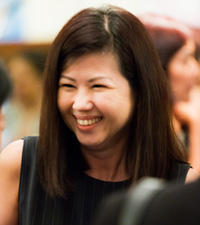
Sonia Clifton-Bligh, Director, Regional Treasury Services Centre ASPAC at Johnson & Johnson also felt that the debate had shifted in recent years. “Initially there was a lot of talk around gender and racial diversity, but now this has broadened to encompass more groups, such as persons with specific political or religious affiliation, sexual orientation, disabilities, or indigenous people as well as multi-generational workforces. I think organisations see the value in having people from different backgrounds with different perspectives and that it facilitates more robust decision making. Companies are therefore putting in more effort in promoting diversity and inclusion, to increase visibility to the under-represented groups, as a result.”
That being so, for now, initiatives such as Women in Treasury remain necessary. As Jennifer Leong, Treasury Director – Asia Pacific, Corporate Treasury at Cummins outlines: “The debate around diversity is starting to get more attention and forums such as this are a great avenue, especially for women, to get together and network, share experiences and learn to build up the treasury community and support the drive for greater diversity and inclusion in the corporate world.”
More to come
We would like to thank all those women and men who took part in, attended and supported our Women in Treasury Asia Forum and would like to invite all of you in the industry who are interested in our initiative to get involved!
There are numerous ways you can do this, including attending our forums in London and New York later this year, taking part in the 2017 Women in Treasury Global Study, nominating yourself or your team member as your Treasury Today Asia Adam Smith Awards Woman of the Year or simply joining our Women in Treasury network on LinkedIn.
For any general enquiries regarding the Women in Treasury initiative in Asia please contact Sophie Jackson, Associate Group Publisher, Treasury Today Asia –
[email protected]